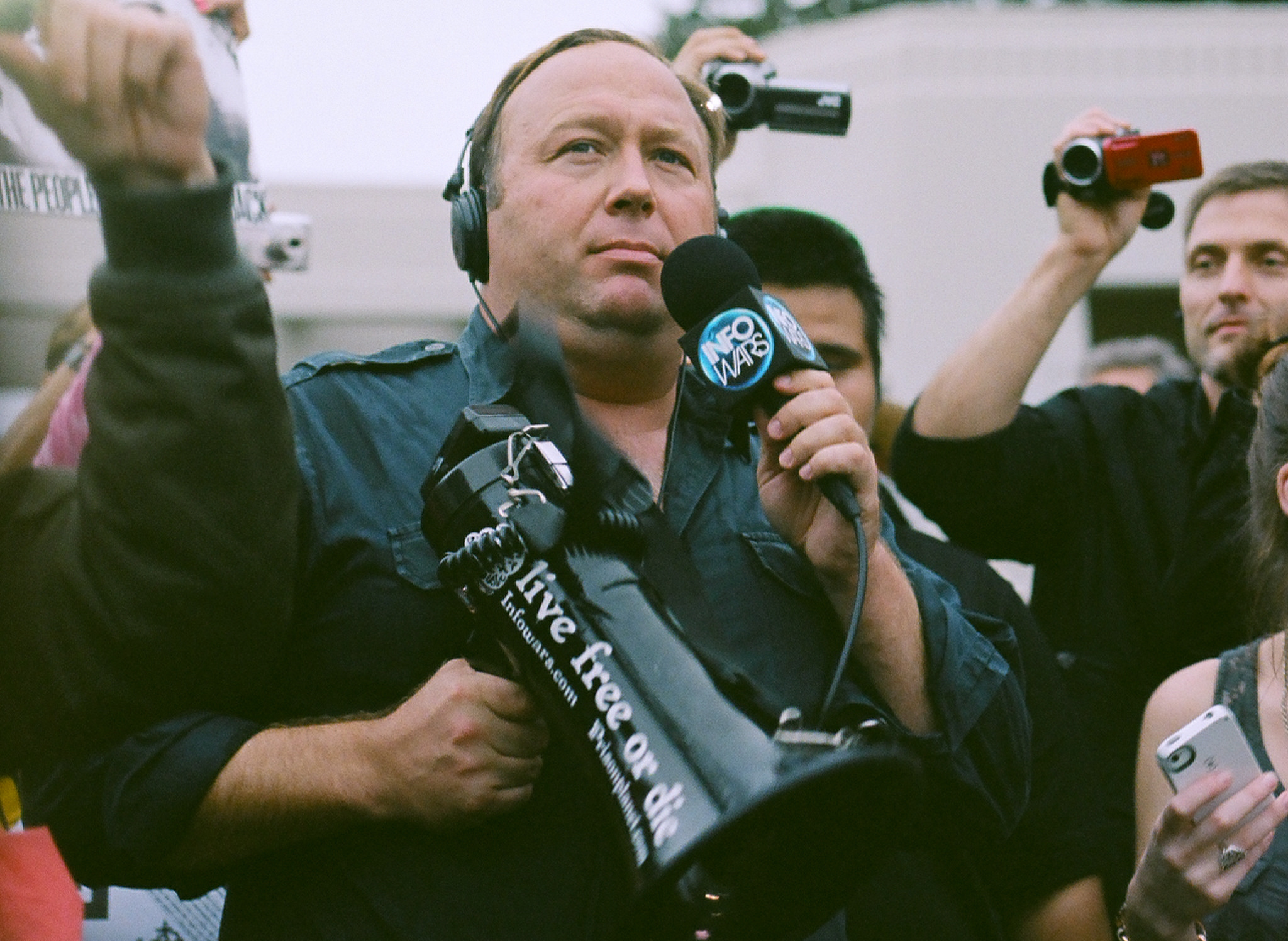Views expressed in opinion columns are the author’s own.
The internet is home to a lot of crazy conspiracy theories. Social media makes it easier than ever for any average Joe to post news without the evidence to back it up. But when does this reckless spreading of misinformation become dangerous?
Take a moment to glance over some of the headlines on infowars.com, the alt-right media outlet run by conspiracy theorist Alex Jones. You will see articles such as “The Fascist Roots of Modern Liberalism” and “Watch As 50,000 North Africans Islamicists Invade Spain.” If you go to his Twitter page, you’ll be greeted with even more absurd conspiracies, like the one where Jones talks about Trump’s opposition using Adobe to create a fake tape where the president uses the n-word.
If that list of wacky claims makes your head hurt, the conspiracy theory Jones is most under fire for will make you feel outraged. Without any evidence, Jones claimed the Sandy Hook massacre was a “giant hoax” staged by gun-control activists. The family of Noah Pozner, a 6-year-old killed in the shooting, was able to get an Infowars video removed from YouTube in 2015. As a result, Jones went on a tirade targeted at the Pozner family and displayed personal information like their address to his audience. This led to constant harassment from Jones’ followers; one of them being Lucy Richards, who was arrested for threatening the life of Lenny Pozner, Noah’s father. Jones is currently facing three separate defamation cases from the Sandy Hook victims’ families.
And just when you thought Jones couldn’t stoop any lower, he reached a new low when attorneys representing some of the Sandy Hook families alleged Infowars deleted evidence prosecutors needed for the defamation lawsuits. As a result of this mess, social media outlets like Apple podcasts, YouTube and Facebook have removed Jones’ content accounts. This purging from social media has led to outcry by those who believe companies are restricting free speech.
What these people don’t understand is that free speech guaranteed under the First Amendment is not blanket protection for any insane, poisonous lies that brutes like Alex Jones wants to spew. Defamation of character is still illegal. In the case of the Sandy Hook parents, who are actually going through with a defamation lawsuit, they have to prove that what Jones said about them isn’t true and that it caused them some form of harm. The former should be easy for the plaintiffs to provide evidence — the Sandy Hook massacre was a legitimate tragedy, and there are witnesses and pictures to prove it.
In regards to how Jones’ statement caused the parents harm, stories like the Pozner family being harassed because Jones publicized their personal information is what many people would consider to be harmful. Thus, free speech may allow Jones to say some crazy things, but there is a line he can’t cross.
So when Alex Jones uses social media to spread falsehoods to the masses, companies like Facebook and YouTube have the responsibility to protect the integrity of their sites. Twitter was struggling with whether or not to ban Jones, and settled on a week-long timeout of his account.
If Twitter CEO Jack Dorsey truly believes that a timeout will reform a serial liar like Alex Jones, then he is delusional. Dorsey defends the company’s decision by explaining that however outlandish Jones’ posts are, they don’t technically violate Twitter’s rules. One of those rules is that tweets with “dehumanizing speech” are not allowed to be posted. Yet, executives couldn’t even agree on a precise definition of what dehumanizing speech.
Instead of having philosophical debates on what constitutes dehumanizing rhetoric, Twitter should follow in the footsteps of Facebook, YouTube and Apple. Alex Jones abused his social media platforms to spread malicious lies, and the consequences of those lies have manifested in real life. The parents of Sandy Hook victims have been the targets of harassment and bullying instead of being allowed to grieve their loss in privacy. If that isn’t dehumanizing enough, then what is?
Asha Kodan is a junior biology major. She can be reached at ashakodan@ymail.com.



